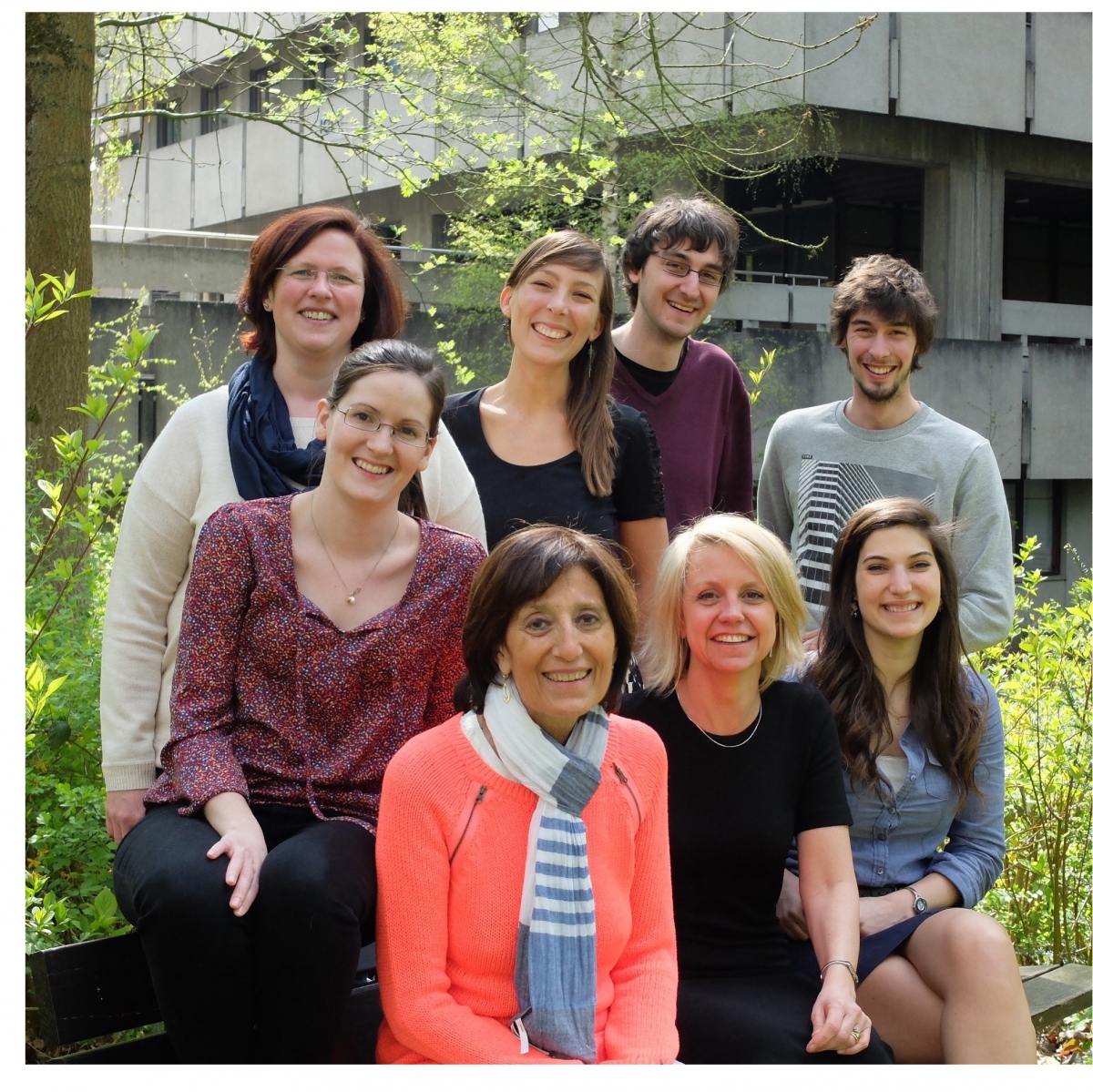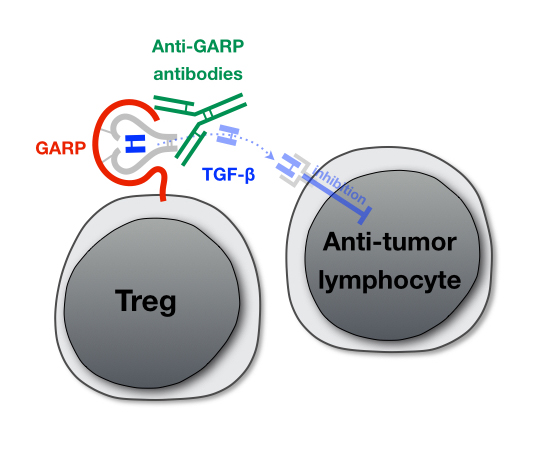

23/04/2015
 A research team from the de Duve Institute (UCL), co-funded by WELBIO, proposes a new approach to treat cancer. Their research focuses on therapies that stimulate the immune system of patients. Immune cells called “T lymphocytes” have the ability to recognize and destroy cancer cells. But resistance to the immune system eventually appears during cancer progression, due to the build-up of an immunosuppressive environment inside the tumors themselves. Immunosuppression paralyzes lymphocytes directed against tumor cells, and cancer lesions progress. New approaches of cancer treatment collectively termed “cancer immunotherapies” attempt to stimulate the paralyzed lymphocytes, to favor destruction of tumor cells. Striking results were recently obtained with certain forms of cancer immunotherapy, but not in all treated patients and sometimes with important side effects. Work by the UCL group published on April 22nd in the prestigious journal Science Translational Medicine opens the way to a new form of cancer immunotherapy, which could improve the efficiency of current treatments.
A research team from the de Duve Institute (UCL), co-funded by WELBIO, proposes a new approach to treat cancer. Their research focuses on therapies that stimulate the immune system of patients. Immune cells called “T lymphocytes” have the ability to recognize and destroy cancer cells. But resistance to the immune system eventually appears during cancer progression, due to the build-up of an immunosuppressive environment inside the tumors themselves. Immunosuppression paralyzes lymphocytes directed against tumor cells, and cancer lesions progress. New approaches of cancer treatment collectively termed “cancer immunotherapies” attempt to stimulate the paralyzed lymphocytes, to favor destruction of tumor cells. Striking results were recently obtained with certain forms of cancer immunotherapy, but not in all treated patients and sometimes with important side effects. Work by the UCL group published on April 22nd in the prestigious journal Science Translational Medicine opens the way to a new form of cancer immunotherapy, which could improve the efficiency of current treatments.
 In practical terms, the research team led by Sophie Lucas and Pierre Coulie, in collaboration with the biotech company arGEN-X, developed a therapeutic agent that stimulates immune responses in an unprecedented manner. This agent targets a particular type of immunosuppressive cells known as “Regulatory T cells” or “Tregs”. The natural duty of Tregs is to limit the activity of the immune system. In healthy individuals, Tregs act as firefighters, to extinguish fires that could be caused by excessive immune activity. Tregs protect us from so-called “auto-immune diseases” such as multiple sclerosis or type I diabetes, by preventing destruction of our own tissues by activated lymphocytes. Tregs exert their immunosuppressive function by producing TGF-beta, a sort of hormone, which inhibits lymphocytes. TGF-beta produced by Tregs can be compared to the water coming out of the firefighter’s hose.
In practical terms, the research team led by Sophie Lucas and Pierre Coulie, in collaboration with the biotech company arGEN-X, developed a therapeutic agent that stimulates immune responses in an unprecedented manner. This agent targets a particular type of immunosuppressive cells known as “Regulatory T cells” or “Tregs”. The natural duty of Tregs is to limit the activity of the immune system. In healthy individuals, Tregs act as firefighters, to extinguish fires that could be caused by excessive immune activity. Tregs protect us from so-called “auto-immune diseases” such as multiple sclerosis or type I diabetes, by preventing destruction of our own tissues by activated lymphocytes. Tregs exert their immunosuppressive function by producing TGF-beta, a sort of hormone, which inhibits lymphocytes. TGF-beta produced by Tregs can be compared to the water coming out of the firefighter’s hose.
In cancer patients, Tregs act in an exaggerated manner: they accumulate inside tumors, which they flood with TGF-beta, paralyzing lymphocytes that could otherwise destroy the tumor cells. The therapeutic agent proposed by the UCL scientists acts on Tregs: it blocks their TGF-beta production system by shutting off the fire hose. More specifically, it consists of monoclonal antibodies directed against “GARP”, a protein required for TGF-beta production by human Tregs. By blocking immunosuppression by Tregs, this therapeutic agent may fuel the activity of lymphocytes directed against tumor cells.
Up to now, this new treatment has only been tested in mice. UCL scientists will evaluate its efficacy in patients suffering from cancer. It may also prove useful to treat other diseases associated with a defective activity of the immune system, such as chronic infections.
Article describing this research
Cuende J, Liénart S, Dedobbeleer O, van der Woning B, De Boeck G, Stockis J, Huygens C, Colau D, Somja J, Delvenne P, Hannon M, Baron F, Dumoutier L, Renauld J-C, De Haard H, Saunders M, Coulie PG and Lucas S.
Sci. Transl. Med. (2015), 7(284):284ra56.